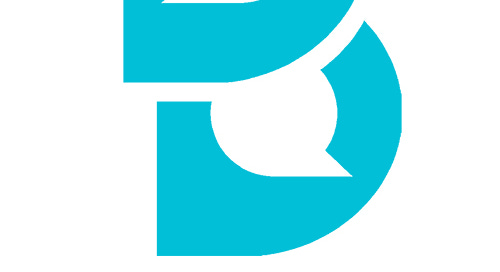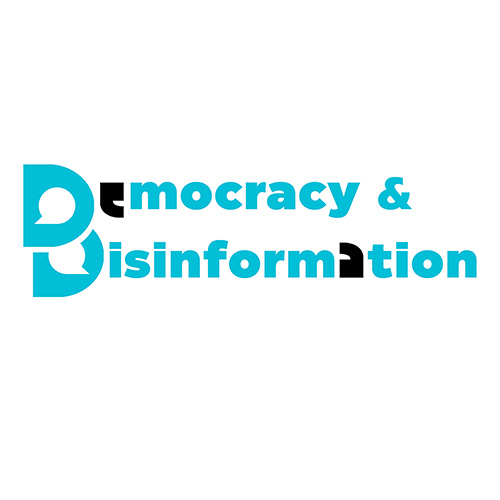In case you missed it, Rappler's Camille Elemia and Gelo Gonzales released last weekend another report on digital marketing group Twinmark Media Enterprises and its network of click-bait articles and propaganda.
Rappler has been following Twinmark since 2019, when it was banned from Facebook for "misrepresentation and spam policies — including through coordinated inauthentic behavior, the use of fake accounts, leading people to ad farms, and selling access to Facebook Pages."
The latest report, though, names celebrities who were paid—in the heartbreaking case of Paulo Avelino (or, at least, the president of his fan club), P2.2 million over two years—to share "TNP content containing propaganda about President Rodrigo Duterte and, at times, even false information." TNP is Twinmark’s Trending News Portal.
He wasn't the only one, according to the Rappler report based on internal Twinmark documents, and celebrities and influencers were reportedly paid from P10,000 to P250,000 a month to share the links and generate engagement for TNP's pages in 2017 and 2018.
That engagement also meant exposure to disinformation and propaganda like, for example, a fake Angelina Jolie endorsement of President Rodrigo Duterte.
SOMEWHAT RELATED:[OPINION] Should stars pay for their politics?
"Celebrities' endorsement of questionable content—done via sharing on their verified and official Facebook pages— is sinister, as it lends credibility and legitimacy to websites and pages that are out to pollute the online environment and spread disinformation. Such practice also lacks transparency, as posts appear as if they were organic or unpaid for," the Rappler report reads.
Avelino's management has distanced him from the official Facebook page in his name, although the Rappler report notes that it is unlikely that they didn't know about the arrangement because of the amount paid and because the page is a verified one.
In any case, Elemia and Gonzales write, "given their power and influence, celebrities should be accountable to their viewers and followers. They should find out and know who hires them, in the same way they do so for brand endorsements."
While pointing out that the practice is not exclusive to TNP, they also note that "[t]he dangers have more far reaching consequences as the Philippines nears the 2022 elections, where the battlefield shifts online due to the coronavirus pandemic."
RELATED:[OPINION] Looking into the local advertising world's dirty secret — political campaigns
The revelations do not seem to have shaken the fandoms of the celebrities named, an unlikely prospect even if they had shared the false information and propaganda in earnest, but it's a significant step in shedding more light on what disinformation researcher Jonathan Corpus Ong (who nobody is at all forgetting in discussions on disinformation) acknowledges is an "open industry secret": That this kind of campaigning is a service offered advertising and public relations professionals.
Although we all know that celebrities and influencers are often paid to promote products and services (and, to an extent, good vibes only), we don't often consider them as sources of disinformation.
RELATED ONLY BECAUSE IT INVOLVES INFLUENCERS: #ChallengeAccepted: Influencers can go beyond 'good vibes' and drive discourse on national issues
Citing survey data, a Reuters Institute for the Study of Journalism piece on responding to disinformation and protecting free speech says that 40% of respondents identified "government, politicians or political parties ... as the source they are most concerned about false or misleading information from."
Thirteen percent identified journalists, about the same that identified "ordinary people," while celebrities aren't mentioned at all.
"It is clear that from the point of view of the public, disinformation is to a large extent a problem associated with the behavior of politicians and other domestic actors, especially on social media, and not more narrowly a problem of false information or actors with more unambiguously ill intent," the Reuters Institute piece reads.
We can't 'cancel' them, and legislation to penalize the practice is a solution that would be, at the very least, problematic. So what can be done?
Among Dr. Ong's recommendations in an InterNews report from January is "to shine a light on the ways in which contemporary campaigns are funded, managed, and executed" in ways that would lead to openness and transparency instead of censorship.
We have to, he says, go beyond unmasking individual “trolls”— a term that he says is “not at all useful here as it muddles any discussion of responsibility and accountability”—and look into the business and political aspects of disinformation infrastructure that make their existence possible and profitable.
The advertising and PR industry will also need to talk about how their self-regulation can be improved from 2019, when, Micheline Rama, now a social behavior change advisor at The Asia Foundation, looked into political campaigns by advertising agencies.
"Political accounts are even more valuable because the clients usually pay in cold, hard cash with no paper trail. Advertising agencies of all sizes are known to distribute their staff to work under different legal entities in order to service competing candidates without conflict of interest," she wrote then.
Noting that ad agency employees she interviewed also mentioned a lack of transparency in the political campaigns, Rama wrote that "[t]he way forward could lie in a principle dictating the practice of honesty and accountability in the industry: 'truth in advertising.'
When the stakes are as high as the elections that determine our country’s future, a little 'truth in advertising' should not be too much to ask."
Ong notes that "the advertising and PR industry has existing frameworks for reviewing advertising materials for corporate brands that set some precedents for what a self-regulatory review board might look like for political ads."
He also says legislation for transparency in political campaigns could also help by providing a framework for more transparency in political consultancies and campaign spending as well as "campaign donations of 'outsourced' digital strategy."
The Commission on Elections issued rules on social media campaigning in the 2019 elections and said campaign posts would be subject to the same limitations on campaign spending. It also said then that it would monitor "social media associates"—including influencers and "trolls"—and would require them to submit reports on payments made to them.
While a good development, Ong notes that "the current framework also has several vulnerabilities, particularly in its extensive focus on the reporting and monitoring of politicians' official social media accounts, and requirement of attaching receipts of transactions," which would not cover transactions that are not formally documented.
The Comelec will have a chance to address that loophole by issuing more detailed guidelines, including "[obliging] politicians to sign off on social media content just as they are obliged to approve television, radio, and print advertising contents."
In the meantime, those working against disinformation must acknowledge that there is no single solution against it and no one sector that can do it alone.
—
ELSEWHERE ON THE INTERNET
The Philippines kicked off its vaccination program this week, but Vice President Leni Robredo was not among the first to get the jabs despite supposed photos spread by pro-Duterte influencers (and officials), as AFP points out in a fact check. Credit should go to Dr. Flordeliza F. Grana —the woman in the photo — and to ‘bakuna’ sleeves.
Also, the New York Times takes a quick look at government censorship of the internet other than ‘The Great Firewall of China.’ Can it be done here?
A ICT rights advocate I talked to for a personal newsletter I do on weekends fears it could be
And ‘deep fake’ Tom Cruise TikToks of someone who the Daily Beast says “looks just like Cruise. Only it’s not Cruise” and has probably never been in a 4G inverted dive with a MiG28 Unlike the Elon Musk look-alike in Palawan, this was a product of tech and not genes and coincidence.
Finally, D&D has a new website at FightDisinfo.ph as well as a new logo and brand things.
The logo was designed by Boojie Peñacerrada, of the University of the Philippines Visayas. The elements of the design consist of two Ds, representing the “democracy” that the Consortium has a stake in and the “disinformation” that threatens it, and two chat or word bubbles, which stand for public discourse.





